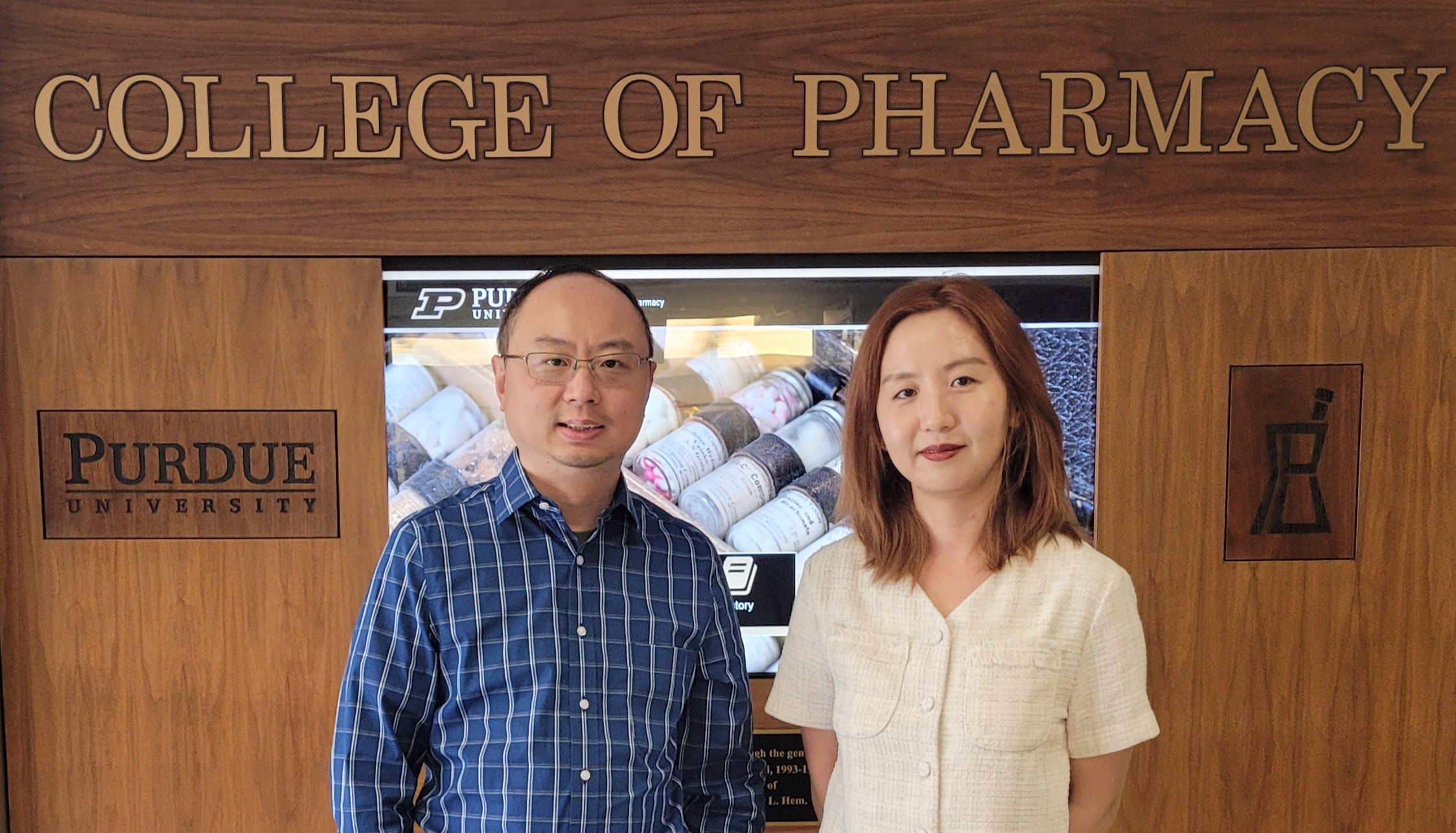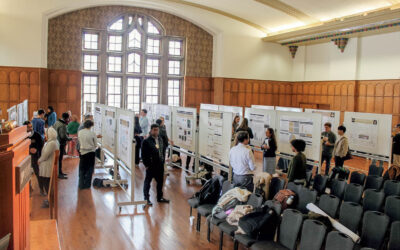
The Purdue College of Pharmacy recognizes outstanding research and scholarship generated by our faculty. In this article, we highlight Qi (Tony) Zhou, for the recent publication, Liposomal Formulation reduces Transport and Cell Uptake of Colistin in Human Lung Epithelial Calu-3 Cell and 3D Human Lung Primary Tissue Models,” which can be read in AAPS PharmSciTech.
A recent study led by Dr. Qi (Tony) Zhou of Purdue University’s College of Pharmacy sheds new light on the use of nanoparticle-based drug delivery systems to treat serious lung infections—an innovation that could lead to longer-lasting targeted therapies.
Published in AAPS PharmSciTech, the study, titled “Liposomal Formulation Reduces Transport and Cell Uptake of Colistin in Human Lung Epithelial Calu-3 Cell and 3D Human Lung Primary Tissue Models,” explores how liposomes—tiny, fat-like particles—can be used to deliver medicine directly to the lungs and release the drug slowly over time. This could reduce how often patients need to take colistin—a last-line antibiotic—and improve its ability to remain at the infection site for longer periods.
“The goal of this research is to explore advanced treatment options for deadly lung infections,” said Zhou, who is the Jack and Barbara McCoy associate professor of industrial and molecular pharmaceutics. “For patients with underlying lung conditions, some infections can become life-threatening, especially when the antibiotics cannot reach the infection sites in the lungs by the traditional administration routes of oral and injectable medicines.”
The team tested liposomal colistin in two lung cell models: one lab-grown from cancer cells and the other from healthy human cells. In both cases, the liposomal antibiotic moved through the cells more slowly.
“Liposomal formulation reduced the cellular uptake and transport compared to colistin solution in both models, which may allow higher drug concentrations in the airway-lining fluid and minimize lung toxicity,” Zhou said. “We hope to contribute valuable insights to the development of antibiotic treatments using liposome carriers, as well as provide a better understanding of various lung epithelium models.”
The practical implications of this research are significant. Drug-resistant bacterial lung infections are a growing global health concern, especially for patients with conditions such as cystic fibrosis or chronic obstructive pulmonary disease (COPD). Traditional oral or injectable antibiotics often struggle to reach lung tissues effectively. By enabling direct and sustained drug delivery, Zhou’s work may pave the way for more effective therapies.
Looking ahead, Zhou’s lab plans to apply liposomal delivery technology to other therapeutic approaches, including bacteriophage therapy—a promising alternative that uses viruses to target and kill antibiotic-resistant bacteria.
Zhou’s collaborators on the study were industrial and molecular pharmaceutics graduate students Yijing Huang and Shruti Sawant, and postdocs Maizbha Uddin Ahmed and Shihui Yu.



